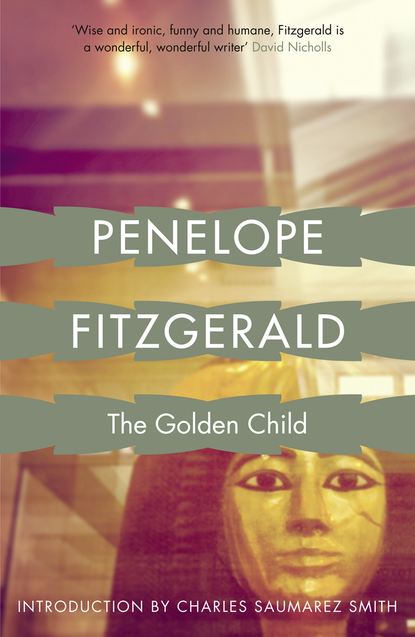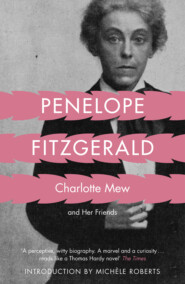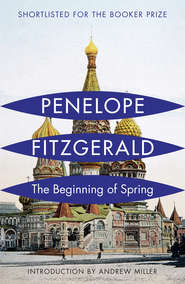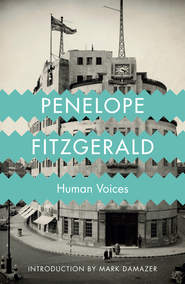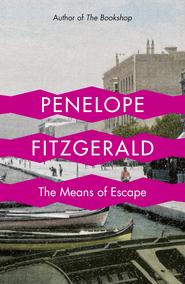По всем вопросам обращайтесь на: info@litportal.ru
(©) 2003-2024.
✖
The Golden Child
Автор
Год написания книги
2018
Настройки чтения
Размер шрифта
Высота строк
Поля
At one point in the courtyard a faint steam or smoke, like that of a camp-fire, rose above the cloud of breath from the swarming red-and-blue-nosed children. It was the field kitchen of the WVS, with urns at the simmer, strategically placed to help those who might otherwise collapse before they reached the steps. Here they all paused a moment, drank an inch of hot catering tea, sweetened at too early a stage for any choice to be made, threw down their plastic cups on the frozen ground and then advanced over what soon became a carpet of plastic cups, blowing on their stiff hands in order to turn the pages of the catalogue which they already knew by heart.
They were not ignorant, these heroically enduring thousands. On the contrary, they were very well informed, and had been for months, as to the nature and content of the Treasure, past which they would file today, perhaps for thirty minutes.
Life among the Garamantians was not really much as we know it today due to their living in Africa in 449 B.C. (HERODOTUS) says they did this. They exchanged gold for salt. (HERODOTUS) says they did this. They had gold, other people had salt, contrary to what we see in England today. They buried their Kings in caves in rocks. So the caves were (TOMBS). When the King was a small child they buried him in a small cave. The dead body was covered with gold. He had a ball of golden (TWINE) to find the way back from the Underground. This was confusing, as is the London Underground. Twine is what we call string, but the Garamantians used different words, due to living in Africa in 944 B.C. When they spoke the sound was likened to the shrill twittering of a bat. Well, personally I have not heard a bat, but it is a Faint Shriek. The child also had Golden Toys put with him to play with after death, as there was no way for him to have proper things — bikes, choppers etc. — as we know them today. I will end here as sir has told us to give in the (CATALOGUE).
The above, one of many projects faithfully carried by their authors to the source of knowledge, was accurate as far as it went. Of the Garamantes Herodotus tells us that they lived in the interior of Africa, near the oases in the heart of the Sahara, and that ‘their language bears no resemblance to that of any other nation, for it is like the screeching of bats’ (nukterides). Twice a year, when the caravans of salt arrived from the north, it was their custom to creep out without being seen and to leave gold in exchange for the salt, for which they had a craving; if it was not accepted, they would put out more gold in the night, but still without allowing themselves to be seen.
They dried the bodies of their dead kings in the sun and buried them in coffins of the precious salt, hardened in the air to a rock-like substance and painted to look like the persons inside; but the corpse itself was covered with gold leaf, which does not corrupt, and since the Garamantians believed that the dead would like to return often, although they might not always be able to do so, they buried with them a ball of fine golden string, to wind and unwind on their journey to the unseen.
The schoolchildren also knew that the Golden Treasure of the Garamantes had been rediscovered in 1913 by Sir William Simpkin, then a very young man and, it must seem, considerably luckier than the archaeologists of today.
Sir William Livingstone Simpkin was born the son of a (MAINTENANCE ENGINEER) which was then called a stoker at a warehouse. They lived down by the old East India Docks. He was named after an explorer. Some say there is a fate in names. He did not go much to school and helped at the warehouse unloading the crates, similarly to what we do for Saturday jobs. Well, this crate had tiles in it from (LACHISH) which is mentioned in the Bible. Well, all these tiles had been sent for a great (ARCHAEOLOGIST) Sir Flinders Petrie. So he took a kindly interest in him. You could train for a bit at London University, he said. Then you would understand the writing on them tiles. So this was how he got started on his work. Unfortunately, his wife is dead.
Sir William, in extreme but clear-headed old age, and after a lifetime of fieldwork, had come to roost in the Museum itself. The vast building was constructed so that no one could see in through any of the windows; otherwise the little lean old figure, with large white moustaches like those of Sir Edward Elgar, might have been glimpsed at a desk on the fourth floor, gently turning the pages of a book. He would have been recognised, even though it was many years since he last appeared on TV, for his appearance had passed into popular mythology. His almost transparent ancient fingers lay across the sepia photographs and the letters and newspaper cuttings crumbling at the edges to dust.
Sir William was playing at defeating Time by turning his pages at random. Here, in the section of June 1913, was Al Moussa, the Chief Minister, who had been persuaded into allowing him to examine the tombs, on condition they were sealed again for ever. Al Moussa was smiling nervously, in formal morning dress, and with many medals; he had not lasted long. There, on the next page, armed with lethal old rifles, were the band of wild Kurds, expelled from Turkey, who had guarded the expedition across the desert, raggedly devoted to their master; all went well till the return to Tripoli, when the Kurds, deprived of their women for many months, rushed headlong into the brothel quarter, scattering their cargo of notes and scientific measurements to the wind.
‘Poor fellows!’ murmured Sir William.
He turned, for a few moments only, for he was quite without personal vanity, to the official photograph of the actual rediscovery of the tomb; he looked so young, like a scanty bundle of washing, it seemed to him now, there in his tropical whites, pointing to the blurred and shadowy entrance.
‘Pardon me, Sir William, I wonder if you’d just take a look at this.’
It was Deputy Security who had trampled into the room and, awkwardly jolting the old man from past to present, laid a piece of bright yellow paper, a leaflet, on the open photograph album.
GOLD IS FILTH
FILTH IS BLOOD
Do you realise that there are People who are Manipulating you in their Own Interests and who are seeing to it that you go to the Exhibition in your Millions in Spite of the fact that it is under a Curse. This So-called Treasure, which has been hidden from Mortal Eye for sixty years, is several times referred to in Holy Writ, where we are told that to ‘look upon Gold is the Body of Death’. When the Treasure arrived on this soil, the Dockers and Transport Workers were not allowed to Move it by Order of their democratically elected Unions. Ask yourself, Why was This? The Truth is that those who look upon the Exhibition are doomed, and yet they are paying 50p for the Privilege. Know the Truth, and the Truth shall Save Ye 50p.
GOLD IS DEATH
‘Where did this come from?’ asked Sir William, always sympathetic, however inconvenient it might be, to genuine distress.
‘They just seemed to appear from nowhere in their hundreds among the queues, all over the forecourt. One moment there was nothing, then these leaflets all over the place, wherever you looked. They’re all picking them up and perusing them, sir.’
Sir William turned the yellow paper over in his thin old fingers.
‘Is there any disturbance?’
‘Well, a teacher fainted and hit himself on the steps, and there was a fair amount of blood, from the nose, the First Aid Room tells me, but blood all looks much the same if you haven’t seen any before.’
‘And what do you want me to do?’
‘That’s it, I’ve come to make a request — I accept you don’t want to come down personally —’
‘Did anyone suggest that I should? Not Sir John, surely?’
‘Oh, no, sir, not the Director. It was Public Relations. But if you don’t want to disturb yourself — if you could just issue some sort of definite statement — I mean, as the only real authority — something we could relay over the TA system — something about the Treasure and the whole matter of this Curse …’
Sir William appeared to be meditating.
‘I expect that I could do that for you,’ he said, ‘but I am not sure of how much use it would be. First of all, you may tell them, with my authority, that every child who can collect fifty of these documents, and put them in the rubbish bins provided, will receive a pound note.’
‘I shall have to clear that with Departmental Expenses,’ said the troubled Deputy Security.
‘I shall pay the money personally,’ replied Sir William calmly, ‘but, in respect of what has been called the Curse, I should like you to add this. Everything that grows naturally out of the earth has its own virtue and its own healing power. Everything, on the other hand, that is long hidden in the earth and is dragged by human beings into the light of day, brings with it its own danger, perhaps danger of death.’
The Deputy Keeper stood rigid with attention and dismay.
‘That doesn’t sound very reassuring, Sir William.’
‘I am not reassured,’ replied the old man.
Sir William had a kind of equivalent to the long-vanished band of wild Kurds in a solid, grizzled, flat-footed museum official called Jones, nominally one of the warding staff, either on stores or cloakroom duties, but in fact acting as a kind of personal retainer to the old man. It was felt that on Sir William’s account, ‘not much could be done about Jones’. This was a source of annoyance to the Establishment, Superintendence and Accounts Departments, but they had been asked for forbearance — it could not be for more than a few years now — by the Director, Sir John Allison, himself.
For this concession Sir William was grateful to Sir John. It made a kind of bond between the awe-inspiring, gently smiling, wondrous blend of civil servant and scholar, who had risen quietly and inevitably, though early in his career (he was forty-five) to the very top of the Museum structure, and the ancient ruffian who lingered in a corner of the fourth floor. Without his countenance, of course, Sir William, whose job was undefined, could scarcely have been there at all, but it must be admitted (since everybody knew it) that there was another reason for Sir John’s care and protection, which had its origins in the vital question of money. Sir William made no secret of his intention to leave a large part of his fortune — accumulated heaven knows how and invested heaven knows where — to the Director, to be spent as he thought fit in the improvement of the Museum. This, in its turn, would mean a vast increase in the Museum’s holdings of French porcelain, silverware, and furniture, the centre of Sir John’s working life — he knew more about this subject than anyone else in the world — and the centre of his emotional life also, for the two came to much the same thing.
Sir John was paying a brief call on Sir William, ascending in his private lift to the fourth floor, since the old man had to be spared walking as much as possible. Sir William had particularly asked to see him, being deeply disturbed at the plight of the frozen children and teachers, now gradually thawing and steaming as they reached the haven of the entrance halls.
‘I went through a few rough times finding these things,’ he muttered, ‘but God knows if they were worse than what these people suffer when they pay to see them.’
Sir John wondered privately how the old man could know this, since he had positively refused to go and look at the Treasure on its arrival or to visit the Exhibition.
Sir William read his thoughts without difficulty. ‘When you’ve been in business as long as I have, John, you won’t have to go out to get information, it will come to you.’ The Director produced out of his pocket something exquisite — a box containing a tiny but priceless feast-day Icon from Crete, a saint in jewelled robes raising a man from the dead. ‘The box was made for it, of course. One thinks of the Prado, but theirs was stolen, I think.’
The two men bent over it, absolutely united, and for a moment suspended in time and place, by their admiration for something fine.
‘Have you had any coffee?’ the Director asked, shutting the little box.
‘Well, Jones brought it, I suppose.’
‘Where’s your secretary, where’s Miss Vartarian?’
‘Oh, Dousha has to come in late these mornings, she has to be indulged. You only have to look at her to see that.’
‘She ought to be in. You haven’t forgotten it’s a Press day? We shall be bringing this Frenchman, this anthropologist, along to see you later. And there’s the Garamantologist, German I suppose, but the combined efforts of my staff haven’t really discovered what his nationality is — Professor Untermensch, I mean.’
Sir William gazed at the Director like an old tortoise. ‘I know all that, John, and what’s more, in case I should forget it I am to receive a visit from your subordinate from the Department of Funerary Art, Hawthorne-Mannering.’
‘He means well,’ said the Director.
‘Nonsense’, replied Sir William, ‘but let him come, let them all come. I dare say I shall be able to forget enough to keep them happy.’
It was one of Sir William’s difficult days, and yet surely he was no more difficult than anyone else. The Museum, nominally a place of dignity and order, a great sanctuary in the midst of roaring traffic for the choicest products of the human spirit, was, to those who worked in it, a free-for-all struggle of the crudest kind. Even in total silence one could sense the ferocious efforts of the highly cultured staff trying to ascend the narrow ladder of promotion. There was so little scope and those at the top seemed, like the exhibits themselves, to be preserved so long. The Director himself had been born to succeed, but he now had to have a consultation, at their request, certainly not at his, with two of the Keepers of Department who had been expectant of promotion long before his arrival, and who regarded him with a jealousy crueller than the grave.
Sir John was immune from the necessity of being liked. He went down one floor in his private lift. A nod from his invaluable private secretary, Miss Rank, indicated that the loathsome pair must have already arrived, and, as befitted their seniority, had been shown into his private room.





